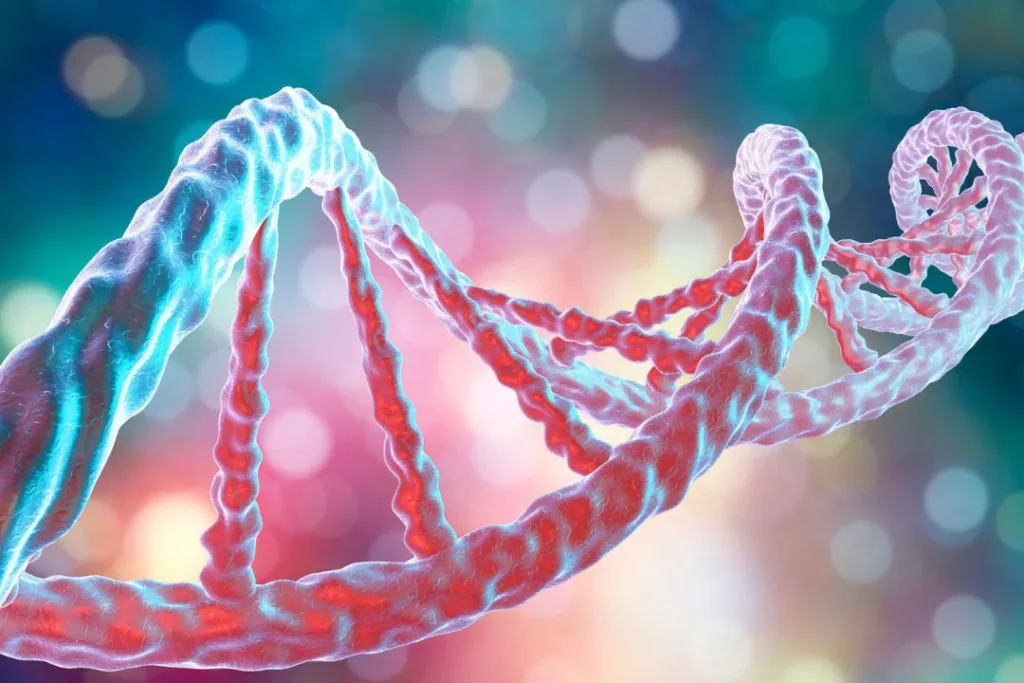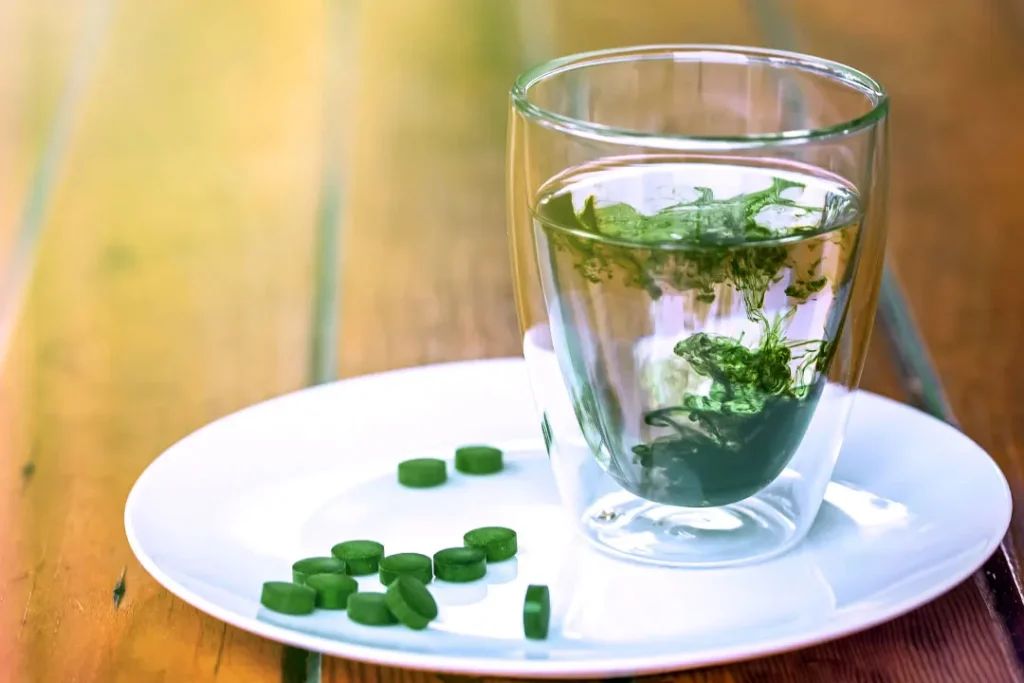In recent years, scientists and researchers have scrutinized Chlorophyllin due to speculation that consuming it responsibly may have positive effects on health. Chlorophyllin is a semi-synthetic combination of sodium and copper ions generated using chlorophyll. Evidence shows that Chlorophyllin has promising results when used as a dietary supplement in a variety of health applications, ranging from the prevention of cancer to the healing of wounds. This article will explore some of those applications, benefits, potential side effects, and other useful information as you consider taking Chlorophyllin yourself.
You May Also Like:
Caprylic Acid: Benefits, Dosage, Side Effects, Drug Interactions, and Other Important Information
Chlorophyllin: Benefits, Dosage, Side Effects, Drug Interactions, and Other Important Information is an original (NootropicsPlanet) article.
The Nature of Chlorophyllin
Chlorophyllin is a water-soluble, semi-synthetic derivative of chlorophyll. The component parts of chlorophyll are a chlorin ring, a magnesium ion located in the middle of the ring, and a phytol side chain. Chlorophyllin differs from chlorophyll in that the magnesium ion in the core of the ring has been replaced by copper, and the phytol side chain has been eliminated. Moreover, the presence of copper is the reason for the unique green hue of Chlorophyllin. The presence of copper also contributes directly to the antioxidative characteristics of this pigment.
Discover Amazon’s Top Chlorophyll Supplements for Body Health and Wellness—Explore Now!

Health Benefits of Chlorophyllin
Antioxidant Properties: Chlorophyllin has properties that allow it to operate as an antioxidant, which means it is capable of neutralizing reactive oxygen species (ROS). ROS are potentially dangerous chemicals that may cause damage to cellular structures and DNA. Lowering levels of reactive oxygen species (ROS) in the body may help prevent a variety of chronic illnesses, including cancer and heart disease.
Anti-carcinogenic capabilities: Scientists investigate Chlorophyllin for its ability to bind to specific carcinogens, such as those contained in cooked meat, and prevent them from generating damage to a person’s DNA. This binding activity may result in a reduced likelihood of a consumer of Chlorophyllin developing cancer.
Chlorophyllin has a good impact on healing wounds, most likely because of the antibacterial qualities that it has. When administered directly to wounds, it may assist in the prevention and treatment of infection and hasten the healing process.

Chemistry of Chlorophyllin
The structural quality of Chlorophyllin makes the molecule water-soluble. Being that Chlorophyllin is water-soluble, it is an excellent candidate for use in nutritional supplements. Despite this, further study is necessary to completely understand its mechanisms of action and to develop uniform use recommendations.
Unlock Health Benefits with Amazon’s Best Chlorophyll Supplements—Shop Now!

Physiological Mechanisms of Action
Chlorophyllin has strong antioxidant properties. Because the copper that is present in the chlorin ring is able to both give and take electrons, it is able to help the body rid itself of potentially dangerous free radicals.
Chlorophyllin’s ability to inhibit the growth of microorganisms is one factor that contributes to the success of this compound in treating wounds. On one hand it aids in the prevention of infection and improves the healing of wounds. On the other hand, the precise processes by which Chlorophyllin produces these benefits are not completely known and are the focus of study that is currently being conducted.

Optimal Dosage of Chlorophyllin
The appropriate Chlorophyllin dose varies widely depending on the individual parameters being considered as well as the intended application of the supplement’s usage. Nutritional experts recommend a daily dose in the range of 100 to 300 milligrams for optimal health effects. If you have a particular health issue, your doctor may suggest a higher dose. However, before commencing any kind of supplement routine, it is best to discuss your options with a qualified medical practitioner.
Experience the Power of Nature with Amazon’s Best Chlorophyll Supplements—Shop Now!

Side Effects of Chlorophyllin
In most cases, Chlorophyllin is regarded to be harmless and has very few adverse effects. In some cases, though, some people, especially those who take extremely large dosages, may develop some mild gastrointestinal distress, such as diarrhea or feces that are green in color. Moreover, allergic reactions are uncommon but not unheard of. If you experience any adverse effects, you should cease use of the product immediately, and you should contact a doctor or other healthcare professional.

Potential Substance Interactions with Chlorophyllin
As of the time of this writing, there are no well-documented instances of Chlorophyllin interacting negatively with any other medications. Nevertheless, because of its capacity to bind to specific chemicals, it has the potential to alter the way the body absorbs other medications or supplements that are taken at the same time. Because of this, you are advised that when taking Chlorophyllin, take it on its own and not along with any other vitamins or drugs.
Responsible Use of Chlorophyllin
Chlorophyllin should be taken with the same level of caution as any other dietary supplement. It is not intended to serve as a substitute for a healthy diet or as a therapy for medical disorders and should not be done so without the supervision of a qualified medical practitioner. Because research on Chlorophyllin is still ongoing, we do not yet have a complete understanding of its effects over the long term.
Chlorophyllin: Conclusion
Chlorophyllin is both water-soluble and semi-synthetic. It is a substance that comes from chlorophyll. It can be used as a food additive, nutritional supplement, and form of alternative medicine. It also exists in the form of a topical preparation that can be applied directly to the skin. Further data is necessary to firmly assert Chlorophyllin’s proven benefits to a person’s health, but in the meantime, between your own research and consultation with your health care provider(s), consider trying Chlorophyllin today.
Achieve Natural Wellness with Amazon’s Top Picks for Chlorophyll Supplements—Explore Here!

References:
- Chlorophyll and wound healing: Experimental and clinical study. Retrieved From: https://www.sciencedirect.com/science/article/abs/pii/0002961050905319
- Chlorophyllin intervention reduces aflatoxin-DNA adducts in individuals at high risk for liver cancer. Retrieved From: https://www.pnas.org/content/98/25/14601
- Chlorophyllin Modulates Gut Microbiota and Inhibits Intestinal Inflammation to Ameliorate Hepatic Fibrosis in Mice. Retrieved From: https://www.frontiersin.org/articles/10.3389/fphys.2018.01671/full
Important Note: The information contained in this article is for general informational purposes only, and should not be construed as health or medical advice, nor is it intended to diagnose, prevent, treat, or cure any disease or health condition. Before embarking on any diet, fitness regimen, or program of nutritional supplementation, it is advisable to consult your healthcare professional in order to determine its safety and probable efficacy in terms of your individual state of health.
Regarding Nutritional Supplements Or Other Non-Prescription Health Products: If any nutritional supplements or other non-prescription health products are mentioned in the foregoing article, any claims or statements made about them have not been evaluated by the U.S. Food and Drug Administration, and such nutritional supplements or other health products are not intended to diagnose, treat, cure, or prevent any disease.


